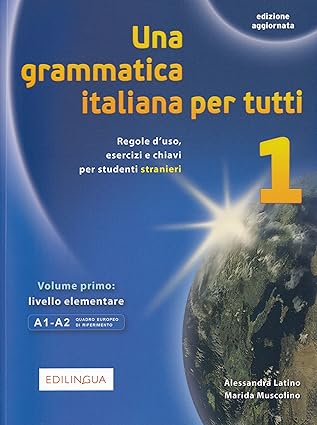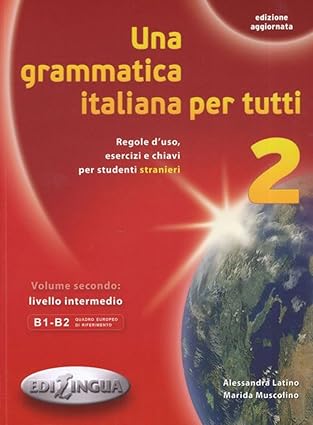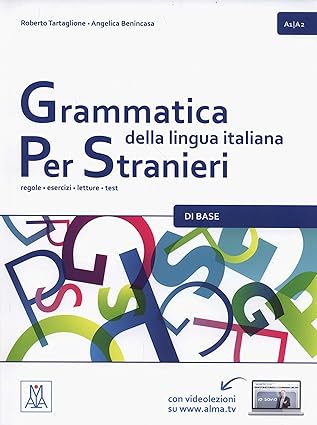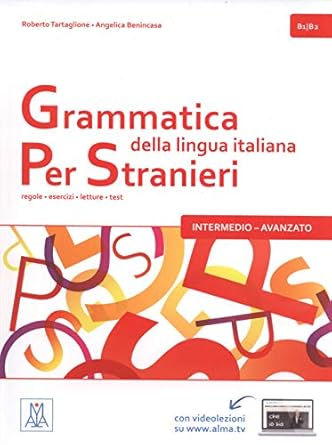Italian conjunctions are words that serve to join, or unite two different sentences or words together and are divided into:
- Coordinating conjunctions: Unite two similar elements in the main clause or two independent clauses.
- Subordinating conjunctions: Link dependent or subordinate clauses to the main clause.
- Laura e Gianfranco hanno una bella casa in campagna.
- Laura and Gianfranco have a beautiful house in the countryside.
- Loro restano sempre in città, benchè abbiano una bella casa in campagna.
- They always stay in the city, even though they have a nice house in the country.
- The conjunction (e) is coordinative because it joins two words of the same main clause (Laura e Gianfranco).
- The conjunction (benchè) is subordinate because it introduces a dependent or subordinate clause (benchè abbiano) and connects it to the main clause (Loro restano sempre in città).
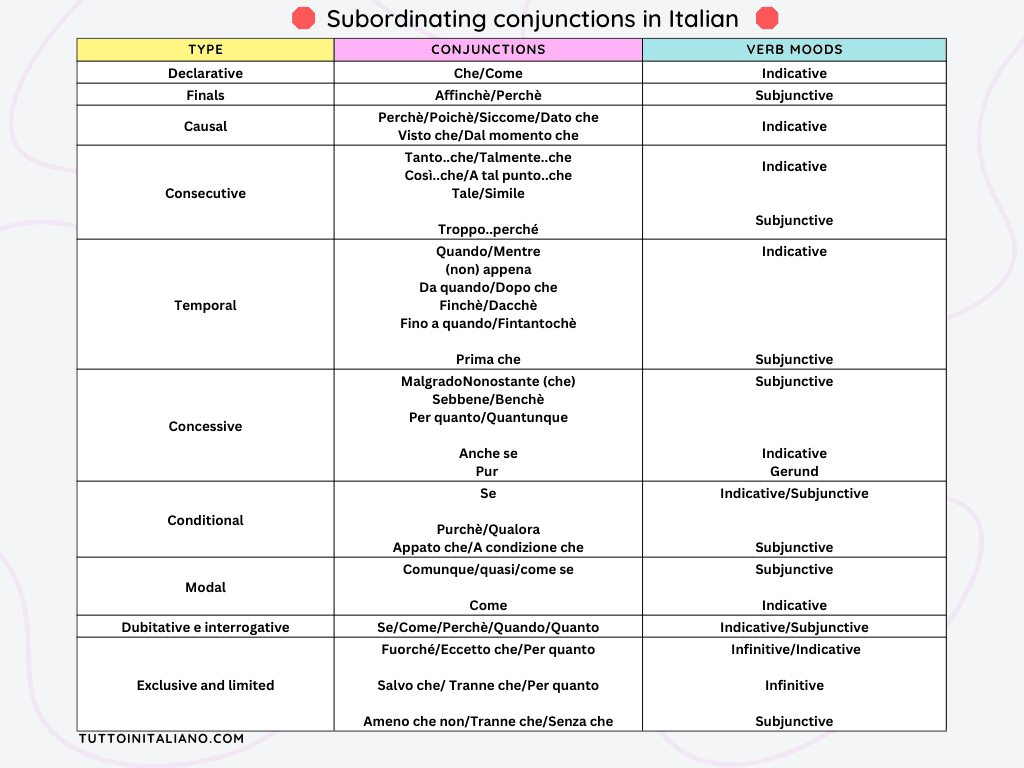
Subordinating Italian conjunctions
Subordinating Italian conjunctions introduce the dependent (or subordinate) clause. Subordinating Italian conjunctions is what we must consider when we want to choose which (verb moods) to use in the dependent clause.
There are 10 different types of subordinating conjunctions in Italian
1. Declarative (Dichiarative):
| Declarative conjunctions | Verb moods |
| Che Come | Indicative |
- Luigi ha detto che si sposerà presto.
- Luigi said he will get married soon.
- Il risultato elettorale ci fa capire come ragionano i cittadini italiani.
- The electoral result makes us understand how Italian citizens think.
2. Finals (Finali):
| Final Conjunctions | Verb moods |
| Affinchè Perchè | Subjunctive |
- Spiegherò un’altrà volta, perchè capiate bene.
- I will explain another time so that you understand well.
- Parlerò più lentamente, affinchè lei possa capire.
- I will speak more slowly so that you can understand.
3. Causal (Causali):
Causal conjunctions introduce (the cause) of what is stated in the main sentence.
| Causal Conjunctions | Verb moods |
| Perchè Poichè Siccome Dato che Visto che Dal momento che | Indicative |
- Gianni non ha superato l’esame, perchè non aveva studiato.
- Gianni didn’t pass the exam, because he hadn’t studied.
- Non è possibile determinare con esattezza il numero degli stranieri in Italian, poichè molti sono immigrati illegalmente.
- It is not possible to determine exactly the number of foreigners in Italian, as many are illegal immigrants.
- Siccome la vita in Italia è molto cara, molte famiglie devono fare attenzione a come spendono i soldi.
- Since life in Italy is very expensive, many families have to be careful how they spend their money.
- Visto che non hai ancora mangiato, vuoi pranzare con me?
- Since you haven’t eaten yet, would you like to have lunch with me?
- Dato che/ visto che/ dal momento che i membri dall’associazione sono tutti uomini, Lia non ha potuto aderirvi.
- Since the members of the association are all men, Lia was unable to join.
The conjunction (Perchè) can indicate a real or unreal cause. If the cause is real, (Perchè) takes the indicative, if it is unreal, it takes the subjunctive.
Real cause: [Perchè + indicative].
- Non sono venuta perchè ero ancora malata.
- I didn’t come because I was still sick.
Unreal cause: [Non perchè / Non perchè non + subjunctive].
- Non sono venuta non perchè fossi ancora malata, ma..
- I didn’t come not because I was still sick, but..
- Non sono venuta non perchè non fossi guarita, ma..
- I didn’t come not because I wasn’t healed, but..
4. Consecutive (Consecutivo):
- [(che) preceded by the adverbs (tanto), (talmente),(così),(a tal punto) (così), and the adjectives (tale) and (simile) + indicative].
- [(perchè) preceded by the adverbs (troppo) + subjunctive].
| Consecutive Conjunctions | Verb moods |
| Tanto..che Talmente..che Così..che A tal punto..che Tale Simile | Indicative |
| Troppo..perché | Subjunctive |
- Era così stanco, che si è subito addormentato.
- He was so tired, he immediately fell asleep.
- Era tanto facile che avrebbe fatto salti di gioia.
- It was so easy that he would have jumped for joy.
- Sandro è troppo stupido, perché io possa uscire con lui.
- Sandro is too stupid for me to go out with him.
5. Temporal (temporali):
| Temporal Conjunctions | Verb moods |
| Quando Mentre (non) appena Da quando Dopo che Finchè Fino a quando Fintantochè Dacchè | Indicative |
| Prima che | Subjunctive |
- Quando si vive in un paese straniero bisogna cercare di capire le abitudini di vita degli abitanti.
- When you live in a foreign country you have to try to understand the life habits of the inhabitants.
- Mentre mangio, mi piace ascoltare musica.
- While I eat, I like listening to music.
- (non) Appena arriverò a casa mi farò una doccia.
- As soon as I get home I will take a shower.
- Da quando vivo a Roma, esco tutte le sere.
- Since I live in Rome, I go out every night.
- Finchè avrà soldi Juan girerà l’Europa.
- As long as he has money, Juan will travel around Europe.
- Dopo che avrò finito Il lavoro, potremmo uscire insieme.
- After I finish the job, we could go out together.
- Prima che tu finisca il lavoro, devo spiegarti qualcosa.
- Before you finish the job, I have to explain something to you.
Amazon ad:
6. Concessive (Concessive):
| Concessive Conjunctions | Verb moods |
| Malgrado Nonostante (che) Sebbene Per quanto Benchè Quantunque | Subjunctive |
| Anche se | Indicative |
| Pur | Gerund |
- Malgrado faccia brutto, ho voglia di uscire in bicicletta.
- Despite the bad weather, I feel like going out on my bike.
- Sebbene abbia solo 18 anni, Carla è già molto matura.
- Though she’s only 18, Carla is already very mature.
- Mi ha ringraziato, anche se non ho potuto aiutarla.
- She thanked me, even though I couldn’t help her.
- Pur mangiando molto, Riccardo non riesce a ingrassare.
- Despite eating a lot, Riccardo is unable to gain weight.
- Anche se la casa nuova era pronta, la famiglia Pacini preferi rimanere ancora nel vecchio appartamento.
- Even though the new house was ready, the Pacini family still preferred to stay in the old apartment.
7. Conditional (Condizionali):
Conditional conjunctions introduce the necessary (condition) of what is stated in the main sentence.
| Conditional conjunctions | Verb moods |
| Se | Indicative Subjunctive |
| Purchè Qualora Appato che A condizione che | Subjunctive |
- Se vedi Alessandra alla festa, salutala da parte mia!
- If you see Alessandra at the party, say hello for me!
- A condizione che tu me li restituisca presto, ti presterò i soldi che ti occorrono.
- Provided you pay them back soon, I’ll lend you the money you need.
- Vi presto la macchina, Purchè me la riportiate stasera.
- I’ll lend you the car because you bring it to me tonight.
8. Modal (Modali):
Modal conjunctions express the way the main action is performed.
| Modal conjunctions | Verb moods |
| Comunque, quasi, come se | Subjunctive |
| Come | Indicative |
- Mi parlò di sè come se fossimo amici da molti anni.
- He spoke to me about himself as if we had been friends for many years.
- Si comporta quasi fosse colpevole di qualcosa.
- He acts like he’s guilty of something.
- Seguirò il tuo consiglio: farò come dici tu.
- I will follow your advice: I will do as you say.
9. Dubitative e interrogative (Dubitative e interrogative):
| Dubitative e interrogative conjunctions | Verb moods |
| Se Come Perchè Quando Quanto | Indicative Subjunctive |
- Non so se questa volta potrò aiutarti.
- I don’t know if I can help you this time.
- Chissà perchè Laura non è voluta venire con noi.
- I wonder why Laura didn’t want to come with us.
- Gli chiesi come avesse fatto a guadagnare tutti quei soldi.
- I asked him how he made all that money.
10. Exclusive and limited (Eccettuative e limitative):
The exceptional and exclusive conjunctions limit or exclude what is said in the main sentence.
| Exclusive and limited conjunctions | Verb moods |
| Fuorché Eccetto che Per quanto | Infinitive or Indicative |
| Salvo che/ Tranne che Per quanto | Infinitive |
| Ameno che non Tranne che Senza che | Subjunctive |
- In casa Piero fa ogni cosa tranne che stirare.
- In the house, Piero does everything except ironing.
- Posso accettare tutto, fuorché essere presa in giro!
- I can accept anything but being teased!
- Per quanto ne so io, Carlotta non ha ancora preso una decisione.
- As far as I know, Carlotta hasn’t made a decision yet.
- Luca ci aiuterà certamente, a meno che non abbia altri impegni.
- Luca will certainly help us, unless he has other commitments.
